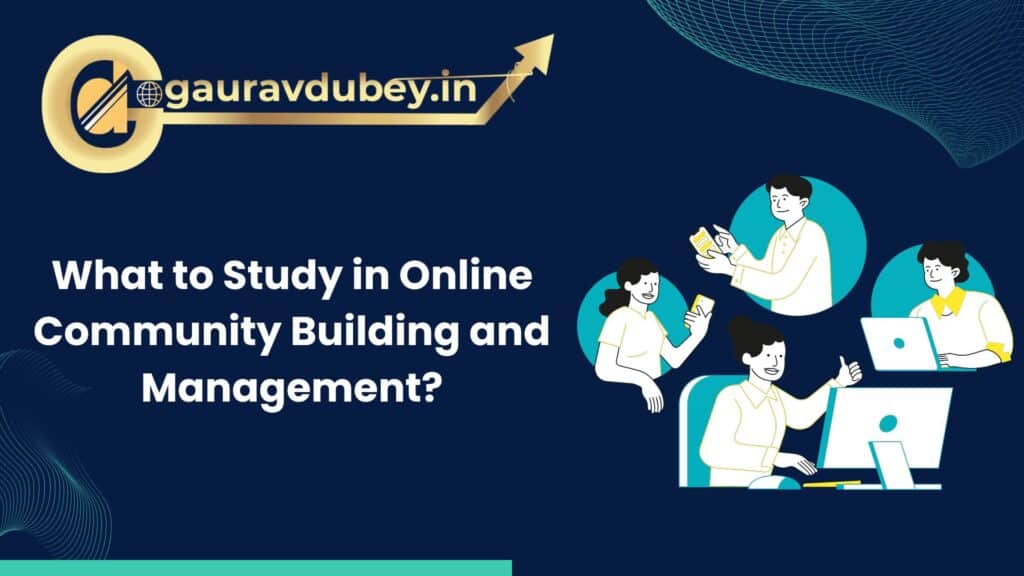What to Study in LinkedIn Marketing?
Hey there! Are you eager to learn how to crack LinkedIn marketing? Are you interested in unlocking the potential of LinkedIn for your marketing efforts? Then worry no more as you are exactly where you need to be. LinkedIn can be a goldmine for businesses and professionals. It offers an unparalleled platform to connect, network, and promote your brand. Let’s explore the essential areas of study for LinkedIn marketing. Let’s go! Creating a Strong Profile on LinkedIn: Having a strong profile can make a world of difference. Let’s not forget that your LinkedIn profile is like your digital business card because it creates the first impression. Study Linkedin Marketing to set up an attractive and professional profile. Complete your profile by putting up a professional photo, an eye-catching headline, and a well-crafted bio showcasing your expertise. If you are successful in creating a strong profile, know that you are half done as it will attract potential connections and potential clients. Creating a Company Profile: A company page is essential if you are looking to promote your brand on LinkedIn. Many businesses have dedicated company pages on LinkedIn. You can check those for reference. Studying LinkedIn Marketing will show your company’s values, products, and achievements. Invest your efforts in optimizing the company profile. A good company profile leads to increased brand visibility and better engagement. It may even foster potential business partnerships. You can also use relevant keywords and hashtags to enhance discoverability. This is a shortcut way to success on LinkedIn. Brand Promotion Activities: LinkedIn is a platform that offers various features and tools to promote your brand. Remember a marketer should focus on engaging content creation. Informative articles, engaging videos, and eye-catching visuals can be considered. Remember to regularly share industry insights and success stories. Sharing helpful tips will position you as an authority in your field. Actively participate in relevant LinkedIn groups. This move can expand your reach and connect you with like-minded professionals. Making Connections: Networking is the most essential component of virtual marketing in general. Your LinkedIn success depends highly on building meaningful connections. This is a vital marketing strategy that you must never ignore. Connect with colleagues, clients, and industry peers as much as you can. Expand your network as much as you can. It will not only open doors to new opportunities but also foster collaborations. Make connections by liking, commenting, and sharing their content. However, you must keep in mind that it’s a two-way street. LinkedIn Ads and Sponsored Content: LinkedIn has a range of advertising options that helps target your desired audience. Learn about LinkedIn Ads for example. These ads can be displayed in various formats, like sponsored content, sponsored InMail, and display ads. An effective ad campaign can significantly increase the visibility of your brand. Ad campaigns also drive valuable traffic to your website or landing pages. Understanding LinkedIn Analytics: Studying LinkedIn Marketing and Linkedin Analytics will help you measure the effectiveness of your marketing efforts. These insights provide valuable data about your audience. They even help in evaluating content performance and overall engagement. Analyzing this data is necessary because it is only through this method can you fine-tune your strategies and focus on what works best for your brand. Another important strategy is to keep yourself updated. Look for the updated features on LinkedIn to stay ahead of the competition. Leveraging LinkedIn Groups: LinkedIn Groups are collaborative spaces where you can join in discussions and share your knowledge. Studying Linkedin marketing and LinkedIn groups gives an opportunity for you to establish yourself as an industry expert. Look for groups relevant to your niche and actively participate in conversations. However, do not overtly promote your products or services. This can look a little desperate on you. Instead, try to focus on offering value and building trust. Building Thought Leadership: Many individuals position themselves as thought leaders on LinkedIn. This significantly impacts marketing efforts. You can try the same as well. Writing thought-provoking articles and sharing valuable insights will help in the process. Participate in industry-related discussions as much as you can. By doing so, you will gain credibility and attract a dedicated following of potential clients. So, what did we learn? Mastering LinkedIn marketing requires a comprehensive understanding of various aspects. Be sincere in following all the strategies and tips mentioned here. By investing time and effort in these areas you can unlock the full potential of LinkedIn. Establishing your brand’s presence and driving meaningful business results is not at all difficult. You just need to slowly and steadily build your LinkedIn. Now go ahead and take the plunge into the world of LinkedIn marketing!
What to Study in LinkedIn Marketing? Read More »











